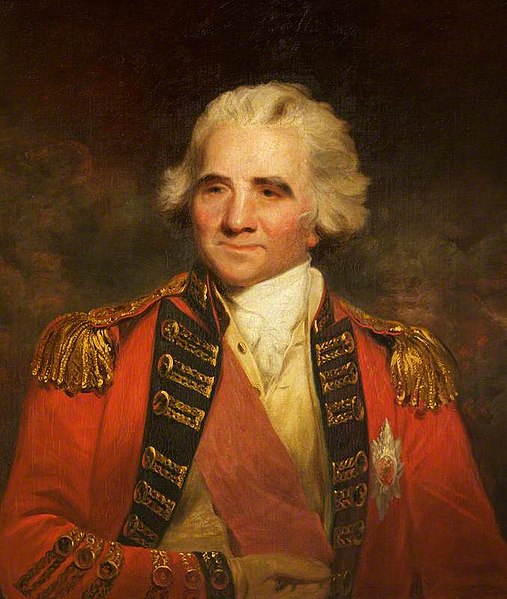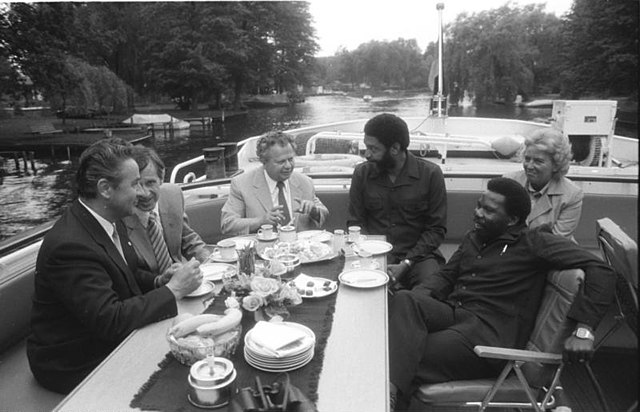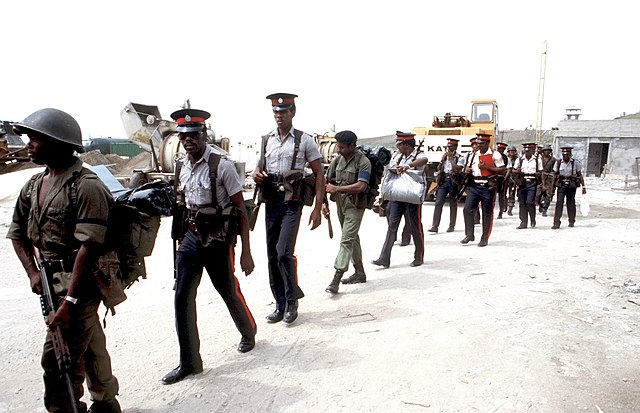Fédon's rebellion was an uprising against British rule in Grenada. Although a significant number of slaves were involved, they fought on both sides. Predominantly led by free mixed-race French-speakers, the stated purpose was to create a black republic as had already occurred in neighbouring Haiti rather than to free slaves, so it is not properly called a slave rebellion, although freedom of the slaves would have been a consequence of its success. Under the leadership of Julien Fédon, owner of a plantation in the mountainous interior of the island, and encouraged by French Revolutionary leaders on Guadeloupe, the rebels seized control of most of the island, but were eventually defeated by a military expedition led by General Ralph Abercromby.
Fort St George, from where the British directed operations against Fedon, seen in 2012
Grenada mountains, over which both parties fought, often transporting cannon with them
Sir Ralph Abercromby by John Hoppner, c. 1798.
St. George's Anglican Church, illustrating the plaques commemorating Fédon's victims
Grenada is an island country of the West Indies in the eastern Caribbean Sea. The southernmost of the Windward Islands, Grenada is directly south of Saint Vincent and the Grenadines and about 100 miles north of Trinidad and the South American mainland.
The island of Grenada and port Saint-Georges in 1776
Maurice Bishop visiting East Germany, 1982
Members of the Eastern Caribbean Defence Force during the 1983 invasion of Grenada
M102 howitzers of 320th Field Artillery Regiment firing during the 1983 invasion of Grenada








